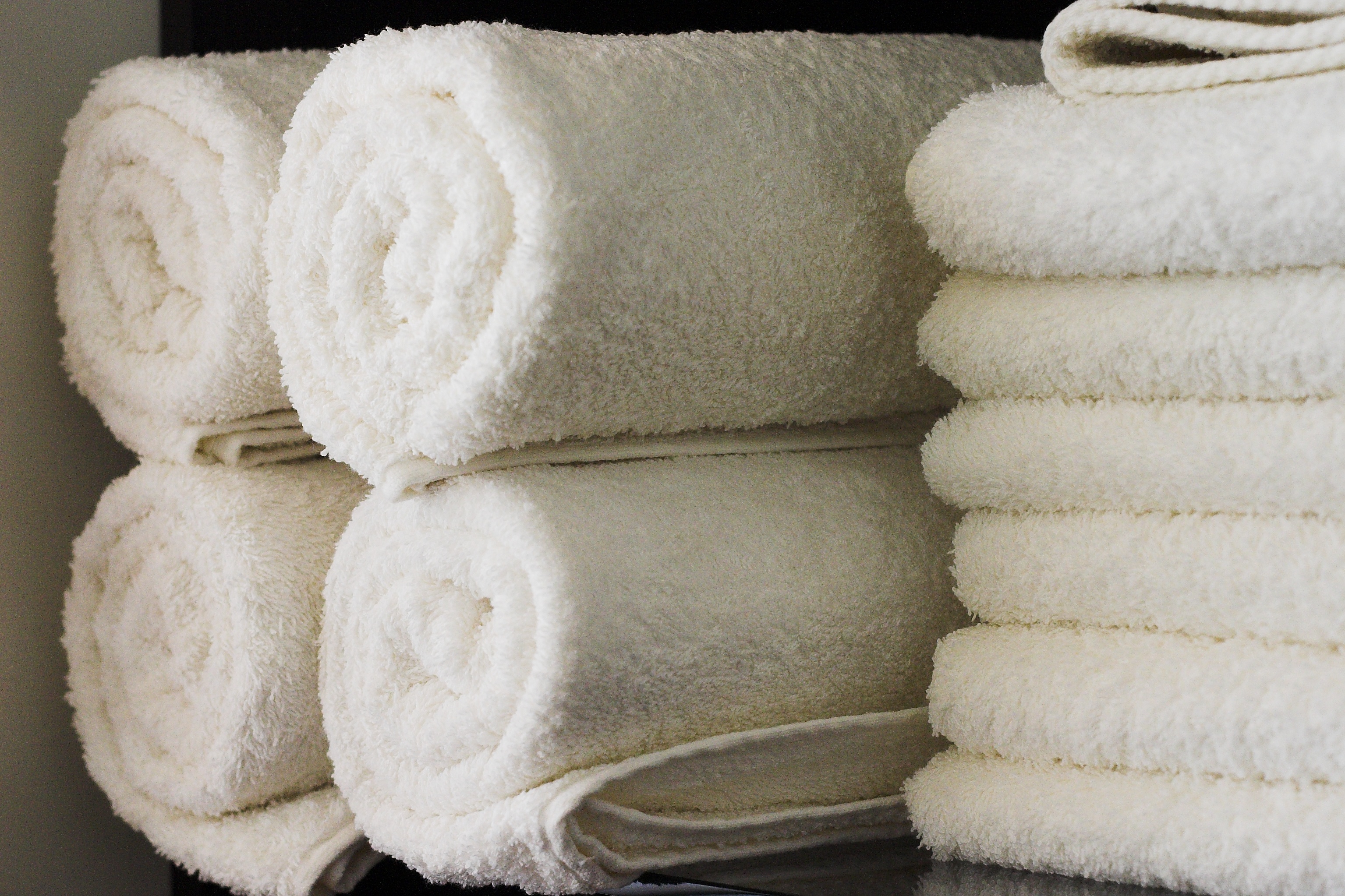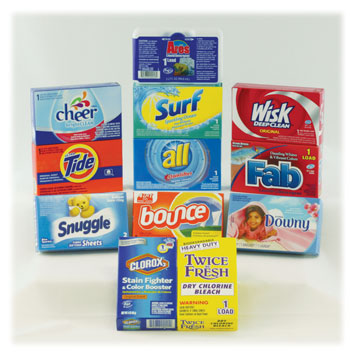Laundering Tips For Bath Towels
March 5th 2016
Keep Your Towels Fluffed, Fresh, and Free of Odor
For hospitality properties, health clubs, spas, and many other businesses that use towels repeatedly, there are a few secret tips to keep them feeling and functioning like new! While large hotels or companies may hire a professional laundry service to clean their towels, self-laundering is still a popular task that should be done properly. Below are National Hospitality's tips to servicing your towels like the pros!1. Towels Smelling Musty?
If your clean towels have a lingering odor, try washing them using the hottest water the towels can tolerate (view manufacturer tag) and use a 50% vinegar / 50% water diluted solution. Bleach is also a viable option if towels are musty or come out looking dingy. Why is white vinegar so popular for cleaning? Benefits of White Vinegar- Be sure to choose "white distilled" vinegar
- Contains no tannins, or natural plant dyes that can produce stains
- Safe and environmentally friendly (low acidity)
- Brightens towels
- Naturally keeps towels soft
- Removes mildew odor
 Fresh Towels are Bright, Odor Free, and Folded![/caption]
Fresh Towels are Bright, Odor Free, and Folded![/caption]
2. Having Trouble Drying Your Towels?
Newer towels direct from the manufacturer usually contain a coating that makes them feel soft and the coating is what stores the dye. For this reason, we recommend washing and drying your towels five times or more to help increase absorbency. The coating needs to break down through the washing cycle, and once that occurs, your towels will dry more efficiently.3. Fabric Softeners or Dryer Sheets Aren't Always Friendly
While the aroma of fresh linens out of the dryer can be attractive, using a fabric softener or dryer sheet with every wash cycle can be counterintuitive. The softeners work by depositing a thin layer of wax on the fibers of the towel, decreasing the absorbency of the towels. It's recommended to skip the softeners or dryer sheets every third or fourth wash cycle. [caption id="attachment_3690" align="aligncenter" width="350"] Shop National Hospitality Laundry Supplies![/caption]
Shop National Hospitality Laundry Supplies![/caption]
4. Make Sure Your Staff Removes Wet Items Immediately
Mildew grows rapidly after wet items are left sitting inside the washer. Mildew increases odor, bacteria, and even some parasites love to live in wet towels.5. Are Your Towels Feeling Rough?
If your towels are feeling more like sandpaper than a soft teddy bear, make sure you're not overdoing it with the detergent. With detergent, "more"doesn't always mean "more clean". In fact, excess detergent can breed unwanted bacteria over time. For more tips on how to fix scratchy towels, click here.6. The Fluff is Gone
The tip to fluffiness is after your towels run through the washer, shake out the towels before placing them in the dryer. After the dryer, fluffing them again and neatly folding them will add volume and make the majority of the towel fibers stand up.7. What is the Optimal Temperature for Killing Bacteria?
Experts and scientists confirm that water between 130° and 150º is effective at killing bacteria. The reality is, most washing machines shouldn't be using cycles with that high of temperature as a precaution. You may be asking, how do I know I'm actually killing the bacteria if my water can't reach the optimal temperatures?- Continue to use efficient, safe hot water settings as listed on your washing machines
- Pay more attention to drying temperature (Drying is very effective at eliminating bacteria)
- Use tips above such as rinsing, shaking, and immediately removing wet items from the wash to prevent bacteria build-up
- Make sure your laundry room is ventilated to reduce moisture, as moisture produces mold

